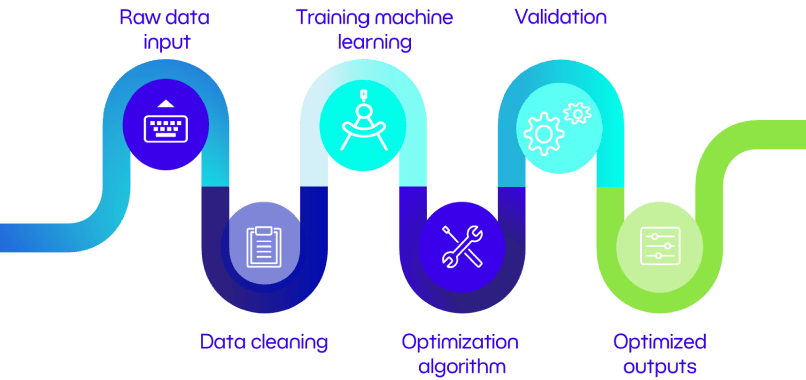Turing, a digital solutions provider, was able to use machine learning to apply its patented Gradiant exclusive SmartOps AI technology to save up to 5% energy, the equivalent of hundreds of thousands of dollars, at a large seawater reverse osmosis plant in the Middle East, while remaining within strict design limits. An international performance measurement and verification protocol was applied to confirm testing results.
The Challenge
Our client, ENGIE, a French multinational electricity utility, faced challenges of high energy consumption at a large-scale seawater reverse osmosis (SWRO) desalination plant in the Middle East. Desalinating seawater is energy-intensive for a few key reasons. Desalination typically requires a significant amount of energy to pump seawater, pressurize it, and force it through filtration or membrane systems to remove salt.
The energy cost is a major contributor to the overall expense of desalination. Optimizing the performance of multiple reverse osmosis (RO) trains also presents a daunting challenge for operators as it is virtually impossible to determine the best operating parameters and membrane replacement frequency to maximizes energy savings.
The Solution
Turing’s SmartOps AI technology, a platform that is exclusive to our parent company, Gradiant, is a powerful software platform that uses machine learning to optimize plant performance and manage assets efficiently. The technology takes into account various input and output parameters, ensuring that facilities meet operating design standards and mechanical limitations, while reducing energy consumption and maintaining water quality and production targets. It’s particularly effective in optimizing the flow of water across reverse osmosis trains with varying efficiencies.
By harnessing the power of machine learning AI algorithms, SmartOps can enhance and predict plant operations, leading to immediate improvements in productivity, cost savings, and reduced carbon and water footprints.
A historical data audit showed that the SmartOps AI technology could achieve energy savings of up to 5%, with a maximum recovery rate of 48% for a plant using a Pelton wheel and manual feed control valve.
To verify these energy savings, Turing employed a simulation model based on ISO International Performance Measurement and Verification Protocol (IPMVP®) to predict what the energy use would have been under standard conditions. This confirmed the energy savings with the client.

The Benefits
Machine learning is a game-changer for plant owners and operators, helping them efficiently control systems and make decisions based on data. Simple daily recommendations for settings allow operators to easily input the best values, so they can focus on providing high-quality water to the ENGIE facility’s 600,000 end-users. Achieving these savings doesn’t require any extra equipment or hardware investments.
ENGIE’s large-scale (SWRO) facility remains a leader in machine learning technology adoption. Its success has become a model for many plants worldwide, allowing them to replicate these benefits. Machine learning integration not only saved a lot of energy, but also improved system control and data-driven decision-making, benefiting both plant operators and managers.
Turing’s exclusive SmartOps AI technology continues to revolutionize the seawater desalination industry, leading the way for other plants around the world to save energy and gain similar advantages.


